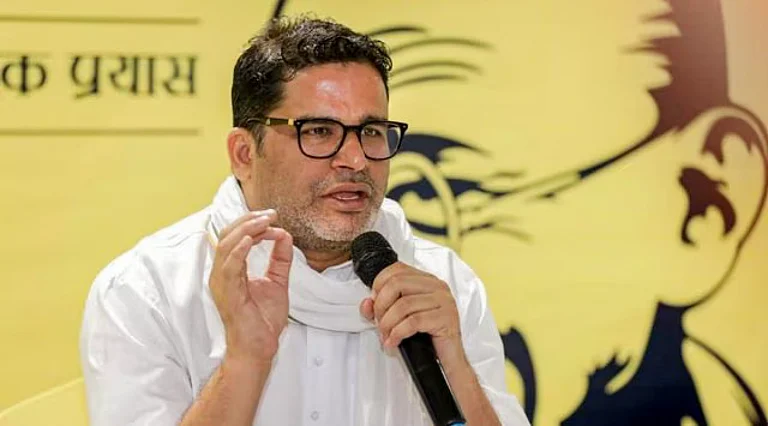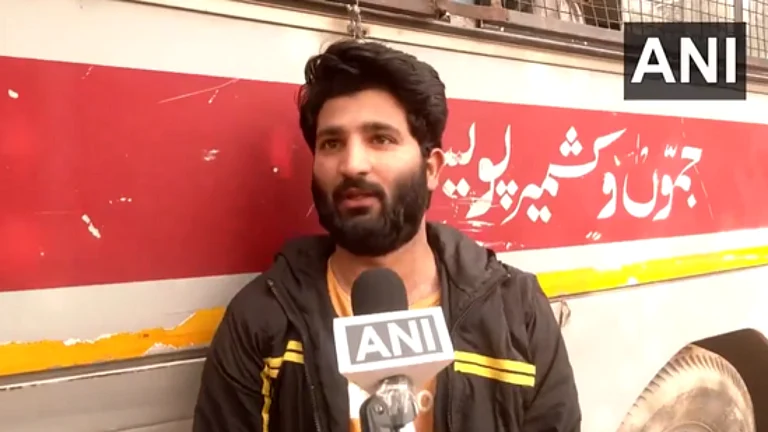Does the Election Commission of India (ECI) have the power to conduct a special intensive revision of Bihar’s electoral rolls months ahead of the state’s assembly elections? This is the question with which a Supreme Court bench comprising Justices Joymalya Bagchi and Sudhanshu Dhulia are vested.
Bihar Electoral Revision Goes To Root Of Democracy: Supreme Court
There are over 10 writ petitions challenging the Election Commission’s order to conduct a special intensive revision of Bihar’s electoral rolls months ahead of the state elections in November. The SC has said the cases go to the root of democracy.
The stakes were already high for Bihar— one of India’s most populous states— as it will go to the polls in November 2025. A political storm was already brewing: November 2025 assembly elections will be the first election after Operation Sindoor and are likely to be the election debut of Nishant Kumar, Bihar Chief Minister Nitish Kumar’s son.
If these factors were not enough for a nail-biter of a race, political strategist Prashant Kishore— known for his shrewd campaigns—is also likely to run as a candidate through his Jan Suraaj Party. It is no wonder that Prime Minister Narendra Modi has been visiting Bihar, sharing stages with Kumar before huge crowds, in a bid to solidify the BJP’s Bihar base.
So, when on June 24, 2025, the Election Commission of India (ECI) announced that it would conduct special intensive revisions of Bihar’s election rolls just months ahead of the election, Opposition leaders and civil rights activists immediately objected. There are more than 10 writ petitions challenging the SIR order before the Supreme Court.
The apex court, in its July 10 order, let it be known that it was aware of the stakes for these petitions.
The Root Of Democracy
“We are prima facie of the opinion that there are three questions: 1. Powers of ECI to conduct SIR, 2. The procedure to exercise the powers and 3. The timeline, which is very short and due in November, and notification will come in advance,” the bench said on July 10 while hearing the petitioners.
In a packed courtroom number 11, Justices Joymalya Bagchi and Sudhanshu Dhulia put under a scanner the ECI order, while maintaining that the Constitutional body had every authority to conduct the SIR. “You do your job according to the law,” said the bench.
Burden Of Proof Shifted Onto Voters
Senior advocate Gopal Sankaranarayanan, appearing for the petitioners, said that the SIR exercise effectively shifts the burden of proof of citizenship onto the voter. He pointed out that SC’s own judgements state that once a person is on the voter rolls, it is for the ECI to prove why they should be struck off.
“The preliminary legal issue is that the SIR shifts the burden of proof from the Election Commission to the voter to prove their eligibility and citizenship,” he said.
Senior advocate AM Singhvi added: “Once I am on the voter rolls, the burden is on them (ECI) to prove why I am liable to be struck off. Not on me.”
“This is not an exercise of inclusion but one of exclusion,” added senior advocate Kapil Sibal.
Can’t Direct Constitutional Body Not To Do Work: SC
While the SC stood by the Constitutional body, the top court did not shy away from questioning both the ECI’s timing and its timelines.
“Why is it being conducted ahead of an election scheduled for November? Can you conduct the revision but not count it in the November elections?” asked Justice Bagchi, while Justice Dhulia added that he thought the SIR exercise was a good idea but that the ECI should have done so sooner in the year.
“Your exercise is not the problem, it is the timing,” the bench remarked, recognising the rationale behind the revision but rebuking its hurried implementation “, so close to polls.”
During the hearing, the petitioners' lawyers argued that the SIR timeline was “impossible.” Sibal, who represented RJD MP Manoj Jha and others, said that “nearly four crore voters”—nearly a third of Bihar’s 12 crore population— were required to submit documents such as father and mother’s birth certificates before the ECI by July 25.
Senior advocate AM Singhvi added, “If by July 25 you don't submit the documents, you will be out,” thus highlighting how the strict deadline could mean qualified voters might be struck off the rolls. He argued that the ECI SIR exercise was a proxy for conducting a citizenship screening, for which the ECI was not the correct authority.
NRC 2.0?
The petitioners contended that the ECI was attempting to check the citizenship of Bihar’s voters through the CAA-NRC route, whereas it was only permitted to do so through the Representation of People Act 1950 (RPA). Based on this argument, Sibal, Singhvi, and others said that the ECI’s order was ultra vires and could disenfranchise the most marginalised voters in India’s 12th most populous state.
While the bench said that the ECI would have to check citizenship as it was the fundamental criteria for voter enrolment, it added that a final check of citizenship was the MEA’s prerogative. “ECI had nothing to do with citizenship … that was the domain of the Home Ministry,” said the bench.
The seniors also pointed out that the ECI had restricted the documents which would be affected and left out national ID papers such as Aadhaar, NGNREGA ration cards and Voter IDs. “For 10 years, this country has gone crazy saying Aadhaar, Aadhaar, and now you won’t accept it for identification?” he said, adding that it was interesting that the ECI would also not accept the Voter ID card.
The ECI, represented by seniors Rakesh Dwivedi and KK Venugopal, were especially irked by the petitioners’ argument that the ECI did not have the right to conduct the SIR.
“If the election commission is not the one to prepare rolls, then we will have to find a body that is,” he said, adding that he took strong exception to the petitioners’ argument.
“This is an argument, but not your strongest, Mr Dwivedi,” the bench pointed out.
Other senior lawyers argued that the criteria for the acceptable documents were self-exclusionary. As the ECI was defending its documents requirements of mothers' and fathers’ birth certificates, Vrinda Grover’s impassioned voice broke through: “What about orphans? What about marginalised people who don’t have birth certificates?”
Let this be our test: ECI
The ECI further said that the petitioners had come to court before the exercise had even begun. “Let the cake bake at least,” he argued in court. To this, the bench replied, “But they (the petitioners) are saying you baked the cake in January already!” The bench was pointing to the petitioners’ arguments that the ECI had conducted summary revisions in Bihar in January 2025, which would make the SIR exercise infructuous.
Dwivedi dismissed the argument, saying those were “only” summary polls and that over 57 per cent of enumeration forms—about 4.54 crore of them—have already been collected, with nearly 98 per cent distributed ahead of the cut‑off date.
It had earlier been reported that the ECI field officials had made sharp progress in collecting more than 83 lakh forms in a single day, and had projected that the SIR exercise would likely conclude well before the July 25 deadline. Dwivedi told the court that the ECI had already collected documents from 60 per cent of the voters on the rolls, and that most of those had been uploaded already.
“They (the petitioners) come here on the basis of rumour and speculation,” he said, adding that the court should sanction the petitioners, in particular ADR, who filed the first challenge on July 5.
“Let us conduct this exercise and use it as a benchmark for our efficiency and perfectness,” Dwivedi appealed to the apex court.
The ECI told the top court that no voter would be excluded who would not have an opportunity to be heard, adding that the SIR exercise would cover approximately 7.9 crore citizens in Bihar. The court observed that, “there is nothing wrong with the SIR exercise itself, but it should have been undertaken well before the elections.”
“Aadhaar Not Proof of Citizenship”: ECI
During the hearing, Dwivedi argued that the ECI could not accept only Aadhaar for the purposes of the SIR as it was only an identification proof, and not proof of a person’s citizenship. Pointing out Article 326 of the Constitution, Dwivedi said: “Every voter has to be an Indian citizen, and an Aadhaar card is not proof of citizenship.”
The court, however, did not accept this argument. Justice Bagchi pointed out that Aadhaar was mentioned as proof for inclusion in the electoral rolls in section 23 of the Representation of People Act 1950.
When Dwivedi objected to this, saying Aadhaar was not used as electoral rolls proof, the judge pointed to the section and said, “Look at the section heading…it says inclusion in electoral rolls.”
The court added that the ECI should have acted earlier if it wanted to check the citizenship of Bihar voters. “If you are to check citizenship under the SIR of the electoral rolls in Bihar, then you should have acted early; it is a bit late,” said the bench.
Dwivedi argued that ECI had the authority to revise the electoral rolls, saying that the last intensive revision had happened 12 years ago in 2003. “With the passage of time, electoral rolls need to be revised to look into the inclusion or exclusion of voter names, with the SIR being the one exercise to do it,” he said. “If the ECI did not have the power to revise the electoral roll, then who did?”
While the bench mentioned that the ECI should not publish the draft list before the date of the next hearing, Dwivedi argued that not adhering to the ECI’s timeline would derail the whole exercise. He pointed out that there were many avenues through which the voters, if excluded, could appeal their exclusion.
The court noted that the petitioners were not pressing for an interim stay on the EC’s SIR notification at this stage.
At this stage, the bench appears to be scrutinising the legal validity of the timing and the SIR’s procedural fairness; however, it is to be seen if the judges will also take in the petitioners’ concerns that the SIR would violate Articles 14, 21, 325 and 326.
Senior advocate Rakesh Dwivedi, representing the ECI, said that the list of documents for verification of voters includes 11 documents and “is not exhaustive.”
The court then said: “In our opinion, it would be in the interest of justice if Aadhaar card, EPIC card and Ration card be included. It is for the ECI to still decide whether it wants to take the documents or not. If it does not take the documents, (it has to) give reasons for the same, and the same shall satisfy the petitioners. Meanwhile, petitioners are not pressing for an interim stay."
Issue Goes to the Root of Democracy: SC
As the hearing ended, the court made it clear it had no intention of stopping the SIR.
“The process of SIR will go on. The list of documents is not exhaustive. Aadhaar card, voter card will be accepted. You (ECI) can do your work, but do it in accordance with the mandate of law. The statute allows Aadhaar,” said a bench comprising Justices Sudhanshu Dhulia and Joymalya Bagchi.
While dictating the order, Justice Dhulia said, “There is no question that this issue is an important issue and goes through the very root of democracy, the right to vote.”
He noted that such a process should not be rushed, as that would be a risk to the democratic process. “Once the electoral roll is prepared, elections could be notified with short notice … and once the elections are notified, no court would touch this.”








